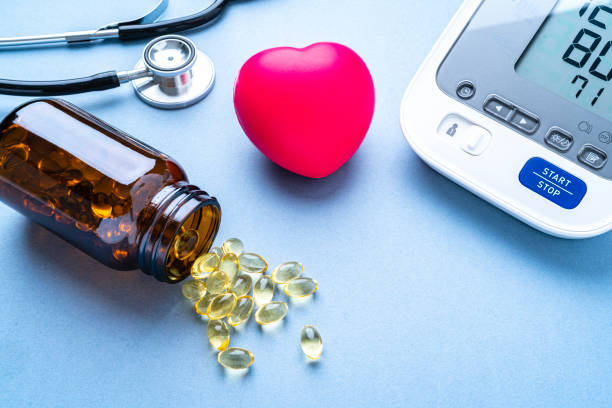
There are many supplements that can lower blood pressure naturally. But, it's important to talk with your physician before you begin taking these supplements.
Many of these supplements utilize powerful phytonutrients, mainly Hawthorne and berry extracts. These extracts are known for their antioxidant properties. They help protect the heart from free radical oxidation.
1. Magnesium
To maintain your blood pressure under control it is crucial to get sufficient magnesium. Magnesium is present in a variety of foods, such as dark green leafy vegetables such as nuts and beans, and whole grains.
But, on average, an American gets less than the daily recommended amount of magnesium from these sources all by itself.
There are many who are at risk of being diagnosed with high blood pressure. The high blood pressure is an important risk reason for premature death as well as heart disease.
Magnesium supplementation may help lower blood pressure (BP), according to research. An analysis of a recently-conducted meta-analysis of 34 clinical studies found that taking a dose of 240 mg per day lowered systolic and diastolic blood pressures by 4.3 and 2.3 millimeters, respectively.
2. Vitamin D
Vitamin D has a number of health benefits, such as lower blood pressure. Vitamin D is found in many foods but it is best if you get enough sun exposure.
Increasing amounts of 25-hydroxyvitamin D (25OHD) in the blood are associated with decreased risk of hypertension and other cardiovascular diseases. It also reduces the risk of developing cancer as well as other chronic diseases.
https://www.bioyouthlabs.com/products/blood-pressure-supplement -response relation between circulating 25-hydroxyvitamin D levels and the risk of hypertension was L-shaped. However, the results pooled of controlled studies randomized to control (RCTs) did not show a significant reduction in blood pressure systolic or diastolic blood pressure after vitamin D therapy.
There is a lot to discover about the impact of vitamin D on blood pressure, but this study suggests that taking a daily supplement can assist in controlling high blood pressure for those who are not getting enough. This could be a simple and efficient way to prevent complications from uncontrolled high blood pressure.
3. Garlic
Garlic (Allium sativum) is an onion-like vegetable which has been used to prevent and treat disease for long. Its odor and taste come from a myriad of sulfur compounds, which makes it an effective detoxifier.
In a meta-analysis of 12 trials the garlic supplementation lowers systolic and diastolic blood pressure for adults suffering from hypertension by 8-10 mmHg. This is in line with standard blood pressure medication and can result in the reduction of 16-40% in the likelihood of cardiovascular-related events, such as heart attack and stroke.
This could be due the decrease in the narrowing of blood vessels or vasoconstriction. Researchers also found that garlic powder was able to slow the effects of aging on arterial stiffening, which is among the main factors that contribute to high blood pressure.
Garlic has been linked to various other health benefits, including an increase in immunity and normalising cholesterol levels. Another study on adults showed that taking 900mg aged garlic extract daily for 12 weeks decreased LDL cholesterol levels by 11% and total cholesterol levels by 6%.
4. Green Tea
Green tea is made out of the leaves of the Camellia sinensis plant. It is a potent herbal remedy that may benefit various areas of your body including your high blood pressure.
In particular, green tea is a source of a catechin called epigallocatechin gallate (EGCG), which has been proven to reduce inflammation and reduce blood pressure. Additionally, EGCG is known to help prevent cell damage from free radicals.
Several studies have shown that green tea may improve blood pressure control in those with high blood pressure. It is also able to reduce LDL cholesterol and triglycerides.
A meta-analysis of studies of 24 found that green tea reduces systolic and diastolic bloodpressures (SBP). To determine the best dosage to lower BP, longer-term and larger studies are needed.
Green tea is also a great way to aid in weight loss, decrease insulin resistance in your cells and lower the risk of certain kinds of cancer. It can also improve your mood and improve oral health.
